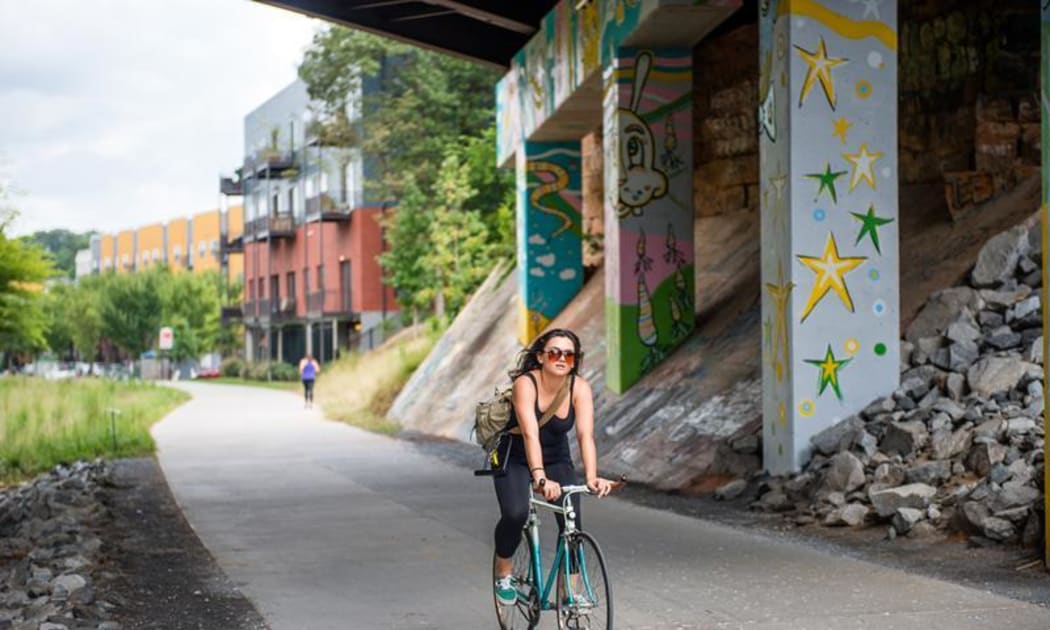When you think about bike-friendly cities, the auto-centric US city of Atlanta may not spring to mind – but that's changing thanks to one woman who took action after a cycling accident.

Photo: Atlanta.net
After hitting a parallel grate and flying over her handlebars onto a busy road in 2011, Jenn Graham had had enough and began a mission to make the city safer for human-powered, two-wheeled transport.
Today, Atlanta has double the number of bike lane miles, a bike share system and a chief bicycle officer.
So what happened? A big trigger was the popular Atlanta Streets Alive project in which pedestrians and cyclists reclaim large stretches of main road for a few hours, Graham says.
“What we found was the numbers of people coming to these events started at 5,000 in 2010, and just this last September we had 130,000 people come out on our signature street, Peachtree Street, where we closed three miles of street and opened them to people.”
The businesses along the street got on board because foot traffic improved, she says.
After her accident, Graham asked city council to replace the dangerous grate she'd hit.
It transpired there were a further 200 in the city council that were soon replaced.
Emboldened by this success, Graham decided to get involved with a bicycle advocacy group.
When a member of this group saw an old abandoned railway corridor he had an idea – what if it could be turned into a bicycle pathway and walkway?
That project is now underway, and eventually 22 miles of dedicated cycle pathway and walkway will connect 45 Atlanta neighbourhoods, Graham says.
“We have ten miles of it completed on the east side. Over $US1 billion of private investment has happened in a 2-mile length.”
It works best to have cycleways separated from traffic, she says.
"We’ve laid out at least 16 miles of bike lanes in Atlanta and we’re leaning more towards protected bike lanes. [To do that] you have to take a lane or parking, so that requires city support and business support.”
Jenn Graham has been Christchurch for the Asia-Pacific Cycle Congress.

